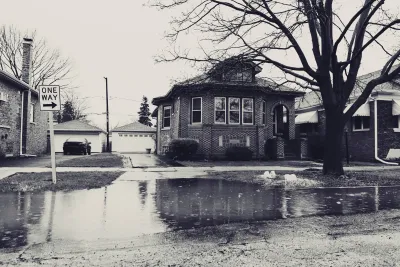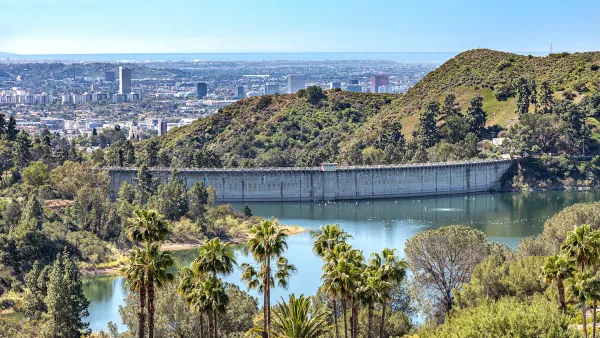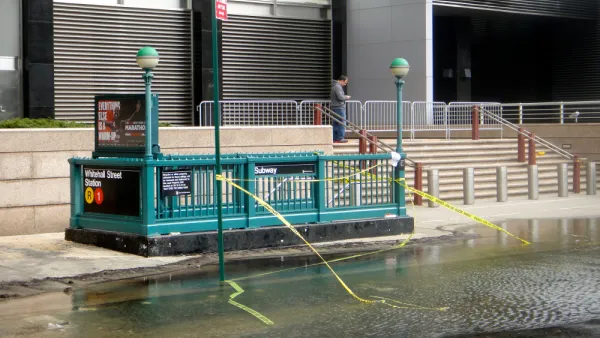The city’s geography and the growing intensity of storms due to climate change are making it difficult for local officials to prevent neighborhood flooding and wastewater spills.

In an article for the Chicago Tribune and republished in Governing, Michael Hawthorne and Adriana Pérez describe how Chicago’s efforts to mitigate higher flood risks are not keeping up with the effects of climate change.
The Deep Tunnel, a $3.8 billion subterranean flood control project officially known as the Tunnel and Reservoir Plan (TARP), is designed to prevent flooding and keep wastewater and industrial runoff out of local waterways. But earlier this month, during a heavy storm, 20 overflow pipes in Cook County spewed runoff and waste. “Recent storms suggest rain can now fall so quickly that stormwater tunnels can’t move runoff to the reservoir fast enough to prevent sewage overflows and basement backups in the 252 square miles of Chicago and County served by the main part of the system.”
The prognosis is grim: “In 2010, [Don] Wuebbles and other scientists hired by former Mayor Richard M. Daley concluded that rains of more than 2.5 inches a day, the amount that can trigger sewage dumping into Lake Michigan, were expected to increase by 50 percent by 2039.”
As the authors point out, “Like so many other societal ills, the consequences hit the poorest Chicagoans the hardest. After a major storm in 2013, city officials determined the damages were concentrated in low- and middle-income census tracts on the West and South sides, similar to where many 311 calls originated after the more recent storms.”
The Water Reclamation District is partnering with local governments to build more retention basins, particularly in areas where flooding has occurred repeatedly.
FULL STORY: Chicago’s Flood-Control Project Can’t Contend With Climate Change

Analysis: Cybertruck Fatality Rate Far Exceeds That of Ford Pinto
The Tesla Cybertruck was recalled seven times last year.

National Parks Layoffs Will Cause Communities to Lose Billions
Thousands of essential park workers were laid off this week, just before the busy spring break season.

Retro-silient?: America’s First “Eco-burb,” The Woodlands Turns 50
A master-planned community north of Houston offers lessons on green infrastructure and resilient design, but falls short of its founder’s lofty affordability and walkability goals.

Test News Post 1
This is a summary

Analysis: Cybertruck Fatality Rate Far Exceeds That of Ford Pinto
The Tesla Cybertruck was recalled seven times last year.

Test News Headline 46
Test for the image on the front page.
Urban Design for Planners 1: Software Tools
This six-course series explores essential urban design concepts using open source software and equips planners with the tools they need to participate fully in the urban design process.
Planning for Universal Design
Learn the tools for implementing Universal Design in planning regulations.
EMC Planning Group, Inc.
Planetizen
Planetizen
Mpact (formerly Rail~Volution)
Great Falls Development Authority, Inc.
HUDs Office of Policy Development and Research
NYU Wagner Graduate School of Public Service



























